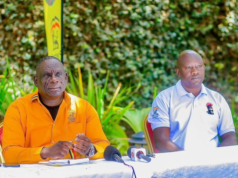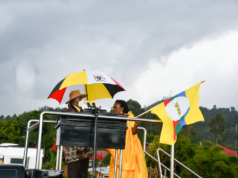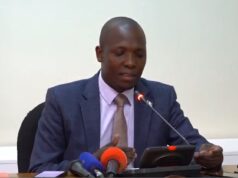
Episcopal Conference of Africa and Madagascar (SECAM) hosted in Kampala at Munyonyo Speke resort, the Bishops headed by the Arch Bishop Mbilingi of will put more emphasis on fighting slave trade in Africa.
Through its Regional Conferences, SECAM President has revealed that much has been done by African Bishops assembly Symposium of Episcopal Conference of Africa and Madagascar (SECAM), multifaceted domains along the 50 years of its existence.
Without giving details, Archbishop Gabriel Mbilingi, the Archbishop of Luanda in Angola mentioned that the universal church has dedicated two special assemblies of the Synod of Bishops to Africa whose past Synodic Apostolic Exhortation gave great impetus to the mission of the Church on the Continent.
Referring to the latest statistics of the Holy See, he said Africa has grown the most in terms of Catholic faithful in recent decades.
The gospel of Jesus Christ has been proclaimed with great dynamisms and joy, despite difficulties that His proclaimation has encountered: poverty in lacking means, challenges within religious sects and social instability in several countries.
He added that its good news for the Continent to invest in health and especially education which he described as one of the main areas of intervention of the Church’s social action.
In this area, he noted that without neglecting the urban and pre-urban reality, the attention of the Church has been focused mainly on the periphery, that is in rural areas where scarcity, suffering and lack of opportunities are most evident and where the very action of local government is difficult to be felt.
For the next 50 years, Archbishop Mbilingi said: We envisage our Catholic Schools to be even more capable of offering students with education that can provide knowledge, skills, values and attitudes aiding in search and the practice of the truth, honesty, work responsibility, loyalty, and strong no to corruption.
He concluded saying that Church through Ecumenism and interreligious dialogues between SECAM and other religious leaders have been crucial in resolving conflicts even of political nature.
Today, the 50 years of existence demand of us more maturity and courage in taking more and more responsibility for ourselves in order for us to be able to help other ecclesial institutions who have inadequate human and natural resources.
Where as the host Bishop Seprian Kizito Lwanga, the Arch Bishop of Kampala arch diocese thanked the president of Uganda general Yoweri Kaguta Museveni for the generous support, love and willingness torwards the organisation and hosting of this conference, he requested him to continue with that heart.






